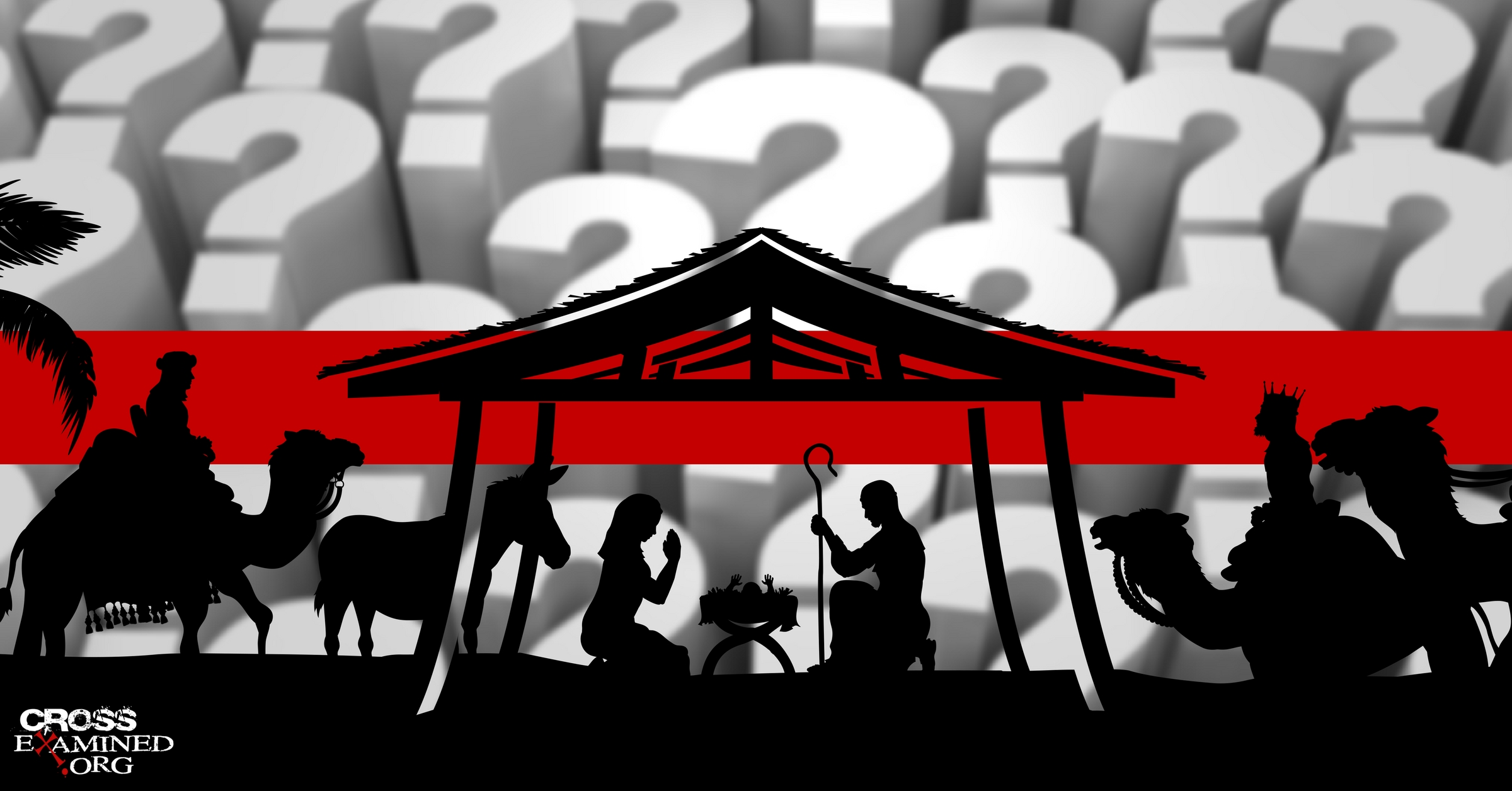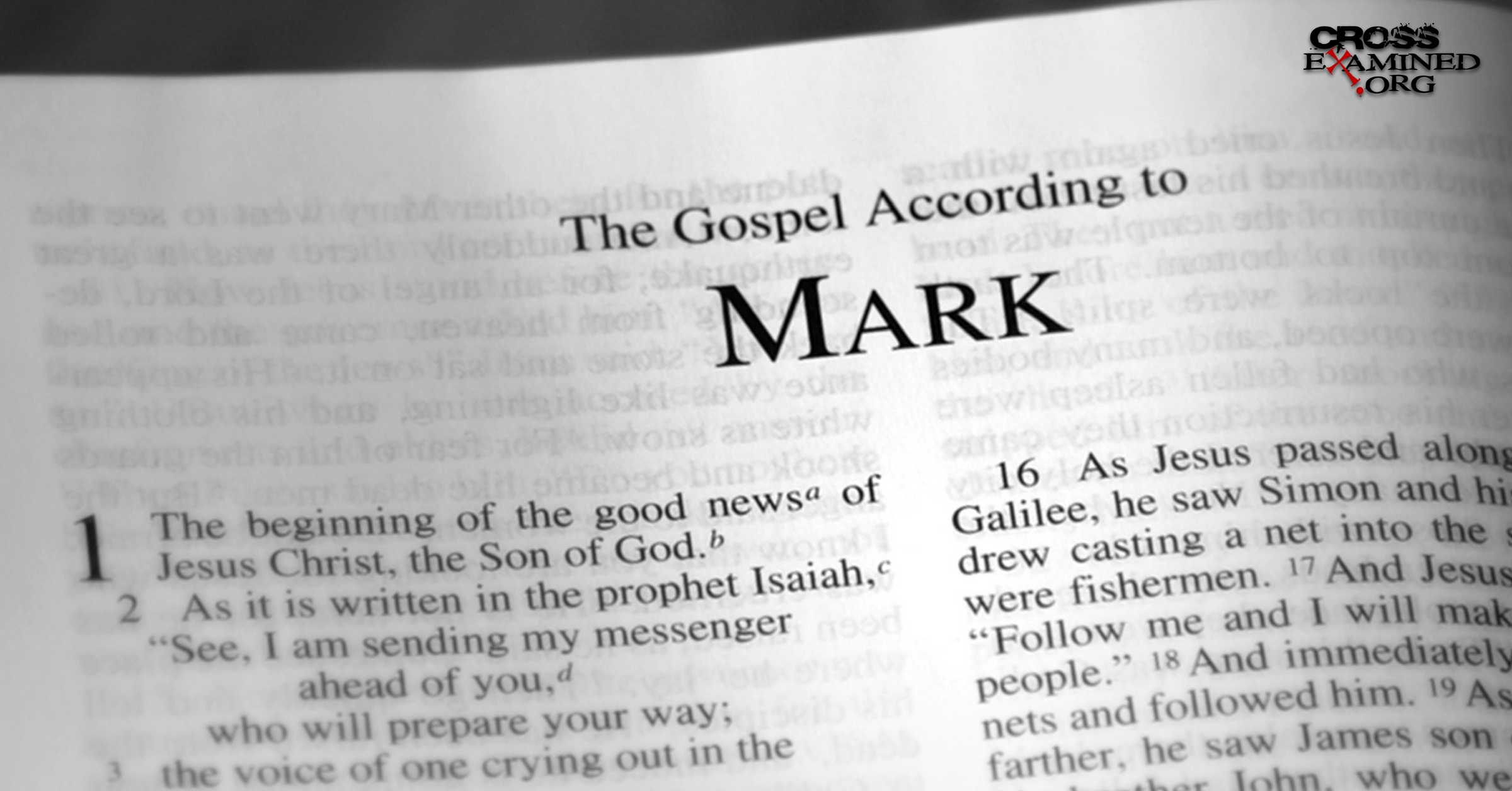Conversations with Jehovah’s Witnesses
“There are some Jehovah’s Witnesses in the neighborhood if you want to talk them,” my wife said. I was excited. I have had numerous and long-standing discussions with Mormons, but never anything meaningful with Jehovah’s Witnesses. After a while, they finally came to my door. While I couldn’t talk to them at the time, we scheduled a meeting for them to come back. I have been meeting with them for about a month now. It has been great! I have studied their teachings for a while, but I have never had the chance to get it from the horse’s mouth and really ask questions to help me better understand their belief system. It really has been a lot of fun, and I would like to share my experiences with you, including their beliefs and the questions I have asked them.
The Name of Jehovah
The first teaching they shared with me was the importance of the name “Jehovah.” In Hebrew (the original language of the Old Testament) God’s personal name is Yahweh. The original Hebrew did not contain vowels, and so this name was spelled YHWH. It was thought to be sacred, and so the Hebrew scribes did not want to pronounce the divine name. Instead, they added the letters of Adonai, which means “Master” or “Lord.” Thus, we get the English spelling “Yahoveh.” Rumor has it that “Jehovah” came about because the Germans had a hard time pronouncing the “Y” and instead made a “J” sound, hence, Jehovah.
However, this name Jehovah came about; Jehovah’s’ Witnesses are adamant that we should call him by his divine name. They teach that English translations have lost this teaching, and it is important to get it right. This is one reason they have their own version of the Bible, which is called the “New World Translation.” Translating words like YHWH as Jehovah is just one difference, and relatively minor in comparison to other teachings that drastically change the text.
Jesus Is “a” God, Not God Almighty
I was surprised that they threw this one at me right out of the gate, but on the second meeting, they brought an elder who admitted that in their view, Jesus is not God. I had known this teaching for years but was not sure exactly how open they would be about it. Happily, for me, they were very open about it. After some general teaching through a pamphlet that they gave me, the elder and I agreed to focus on the topic of Jesus’ deity on our next meeting. I did some preparation, so I could try to prove to them that Jesus did, in fact claim to be God.
He ended up coming by himself on this particular visit, and we went over two passages of Scripture from which he wanted to demonstrate that Jesus was a created being and thus not God. One passage was Proverbs 8:22-23, which says: “The Lord possessed me at the beginning of his work, the first of his acts of old. 23 Ages ago, I was set up, at the first, before the beginning of the earth” (ESV). His point was that “Wisdom” refers to Jesus. I do not remember getting a very clear answer as to why he thought this, but I pointed out that as wisdom literature, “Wisdom” is personified often, and even as a woman. In fact, verse twelve says, “I, wisdom, dwell with prudence, and I find knowledge and discretion.” I asked, “If Wisdom is Jesus, then who is Prudence?” There was no real answer.
His second, and more well-known passage cited by them on this topic, was Colossians 1:15, which says, “He [Jesus] is the image of the invisible God, the firstborn of all creation.” Since Jesus is “the firstborn of all creation,” Jehovah’s Witnesses argue that he is the first created being. However, the Greek word for ‘firstborn’ actually means “preeminent”, not the first in a series of things. In fact, the Greek translation of Psalm 89:27 uses the exact word for David: “And I will make him the firstborn, the highest of the kings of the earth.” However, David was not only not the firstborn, he was the last born. So I argued these two passages are not teaching that Jesus was created. The first was simply a personification of wisdom, which happens all the time in Hebrew wisdom literature. And the second simply doesn’t mean what they say it means. The elder was not convinced, and even said that we can’t go by what the dictionary says. I could not knock him off his script on this point. He simply refused to concede what the word means.
I offered several lines of argument that Jesus claimed to be God. For example, Isaiah 44:6 says, “I am the first and I am the last; besides me there is no god.” However, in Revelation 1:17-18 Jesus claimed, “I am the first and the last, 18 and the living one. I died, and behold I am alive forevermore, and I have the keys of Death and Hades.” This is Jesus talking and not Jehovah (Jehovah never died according to Jehovah’s Witnesses). That Jesus was the one speaking was agreed upon by the elder. My point was that if Jehovah was claiming to be the first and the last and so was Jesus, then Jesus was claiming to be Jehovah. The reply was that Jesus merely was thinking like Jehovah, not claiming to be Jehovah. However, as I pointed out, this is not what the text says. (See this post for more material on Jesus’ claims to deity.)
After making several connections like the one above, I asked the elder what would make him believe Jesus was God if such clear identity claims did not serve as evidence. His answer was that God would not allow himself to be put to death by men. (To be clear, Christians don’t believe God was put to death; rather, the human nature of Jesus was put to death. His deity can not be touched by death.) We never agreed on the deity of Jesus.
Jesus Was Raised from the Dead Spiritually, Not Physically
The elder brought another Jehovah’s Witnesses for this meeting where we further discussed Jesus’ deity and the resurrection. They believe that Jesus pre-existed his human life as the archangel Michael. His life was transferred to the virgin Mary, and he became a human. The elder said that after Jesus’ death he was raised, but spiritually, not physically. He argued that flesh and blood cannot enter the kingdom of God, and since Jesus is in Heaven, he must be spiritual. He also pointed to Scriptures where those who talked to him on the road to Emmaus did not recognize Jesus after his resurrection. Thus, he was not in his former body. For example, Luke 24:13-16 reads, “That very day two of them were going to a village named Emmaus, about seven miles from Jerusalem, 14 and they were talking with each other about all these things that had happened. 15 While they were talking and discussing together, Jesus himself drew near and went with them. 16 But their eyes were kept from recognizing him.” As I pointed out, the text does not say he looked different, but “their eyes were kept from recognizing him.” Further, Scripture teaches that Jesus was raised in his same physical body he had.
Luke 24:39-43 states: “See my hands and my feet, that it is I myself. Touch me, and see. For a spirit does not have flesh and bones as you see that I have.” 40 And when he had said this, he showed them his hands and his feet. 41 And while they still disbelieved for joy and were marveling, he said to them, “Have you anything here to eat?” 42 They gave him a piece of broiled fish, 43 and he took it and ate before them.” Clearly, Jesus was claiming to be a physical being. This was not contested by the elder. However, his response was simply that Jesus materialized in the way angels could in the Old Testament.
I pointed out that John 2:19-21 says, “Jesus answered them, ‘Destroy this temple, and in three days I will raise it up.’ 20 The Jews then said, ‘It has taken forty-six years to build this temple, and will you raise it up in three days?’ 21 But he was speaking about the temple of his body.” So, the same body that was killed would be raised up after death. It is also important to note that in Acts 2:24 Peter says that God raised up Jesus: “God raised him up, loosing the pangs of death because it was not possible for him to be held by it.” This is another claim to Jesus’ deity since he said, “I will raise” my body, and here Peter says, “God raised up Jesus.”
In the end, I asked them what evidence would count for the physical resurrection, even in principle, since Jesus saying that the same body that was killed was the same one raised, and he demonstrated his body to be physical in many ways and on many occasions. But if showing his physical body after his resurrection doesn’t count as evidence (in conjunction with the claim that the same body would be raised), then it seems like nothing in principle could ever be used as evidence for a physical resurrection. The younger Jehovah’s Witness tried to change the subject, but I politely asked for an answer. There really wasn’t one.
The New World Translation, The Trinity, and Jesus
We will be discussing the Trinity next time, although it came up in our last meeting. Jehovah’s Witnesses deny the Trinity. They teach it is a pagan lie and that Christianity stole the idea from other religions that also had trinities; however, such is false. Other religions had a triad of beings but nothing like the Christian view of the Trinity. But Jehovah’s Witnesses cannot hold to the Trinity since they deny Jesus is God. They further teach that the Holy Spirit is not a person but rather God’s active force. In their own translation of the Bible, the New World Translation, “Holy Spirit” is actually translated “active force.” In the NWT, Genesis 1:2 actually says, “…and God’s active force was moving about over the surface of the waters.” This is a gross mistranslation that betrays the NWT‘s bias. The Hebrew is accurately translated in the ESV: “And the Spirit of God was hovering over the face of the waters.” There is simply no justification for translating “spirit” as “active force.”
Another, perhaps the most famous, example of bias in the NWT is John 1:1. The ESV reads, “In the beginning was the Word, and the Word was with God, and the Word was God.” The NWT adds the word “a” to make the text read: “In the beginning was the Word, and the Word was with God, and the Word was a god.” The reason they give is that in Greek the word “God” does not have the word “the” (the definite article) in front of it, which would make it definite. (Greek sometimes has the definite article before nouns even though English doesn’t always translate it. Greek can read “the God” which is merely translated “God.”) They claim that without the definite article, “God” should be translated indefinitely as “a god.” However, as one scholar has pointed out, the NWT only follows this principle 6% of the time. In fact, in John 1:6 the word “God” appears in Greek without the article and the NWT still translates it “God” as referring to Jehovah. This is clear bias. Without going into Greek grammar suffice it to say that a word can be definite even without the article in front of it. In Greek the article has a very rich and broad way of functioning. In Daniel Wallace’s Greek Grammar Beyond the Basics, over 100 pages are dedicated to how the article functions (and by the way he argues against the NWT‘s translation here—which incidentally is where my earlier 6% came from). In short, Greek scholars are not impressed with the NWT, to put it nicely.
Conclusion
I hope that this brief article has helped make you more aware of the teachings of the Jehovah’s Witnesses. For direct info regarding their beliefs see their website. An excellent resource to explain and counter their views is Ron Rhodes’ Reasoning from the Scriptures with the Jehovah’s Witnesses. Robert Bowman, Jr also has excellent material, such as Jehovah’s Witnesses.
Recommended resources related to the topic:
Jesus Among Other Gods: The Absolute Claims of the Christian Message (book) by Ravi Zacharias
Counter Culture Christian: Is There Truth in Religion? (DVD) by Frank Turek
World Religions: What Makes Jesus Unique? mp3 by Ron Carlson
Jehovah’s Witnesses & the Trinity (mp3) by Ed Havaich
Can All Religions Be True? mp3 by Frank Turek
J. Brian Huffling, PH.D. have a BA in History from Lee University, an MA in (3 majors) Apologetics, Philosophy, and Biblical Studies from Southern Evangelical Seminary (SES), and a Ph.D. in Philosophy of Religion from SES. He is the Director of the Ph.D. Program and Associate Professor of Philosophy and Theology at SES. He also teaches courses for Apologia Online Academy. He has previously taught at The Art Institute of Charlotte. He has served in the Marines, Navy, and is currently a reserve chaplain in the Air Force at Maxwell Air Force Base. His hobbies include golf, backyard astronomy, martial arts, and guitar.
Original Blog Source: http://bit.ly/2num9My












Leave a Reply
Want to join the discussion?Feel free to contribute!